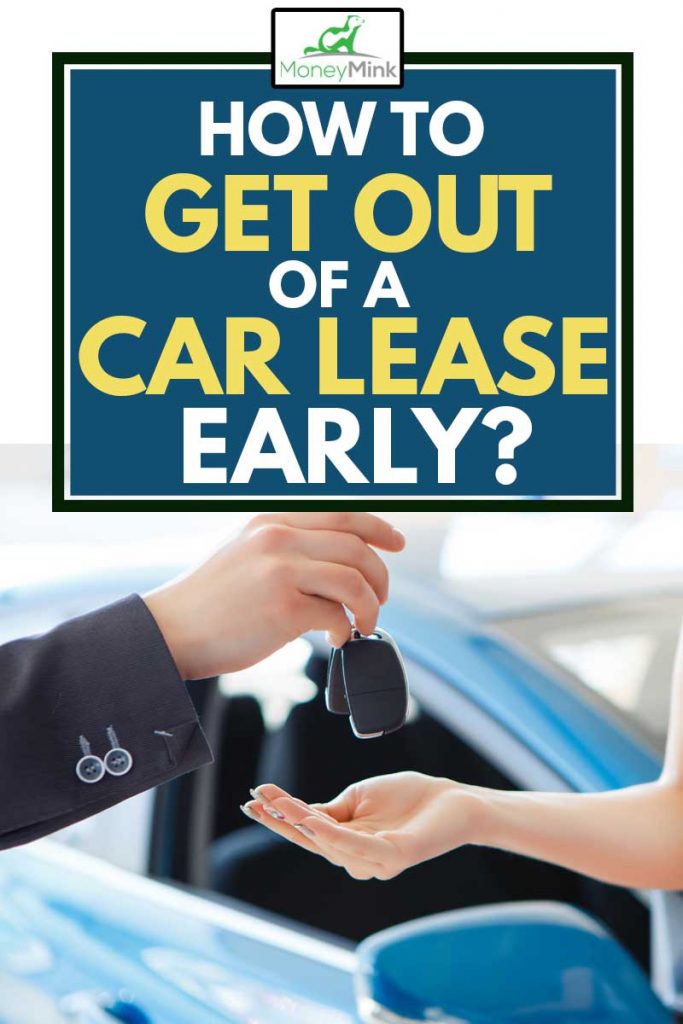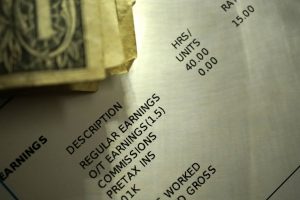Getting out of a car lease earlier than planned can be a bit of a process. Doing so could lead to many significant fees, taxes, or even hits to your credit score. But it doesn't necessarily have to be expensive to end a lease. We've saved you the trouble of researching ways to end a car lease.
You can end it by doing any of the following:
- Return the car to the dealer
- Transfer the lease
- Buy, then sell the vehicle (if it's valuable enough)
- Get a new vehicle from the same dealership
- Seek help from your leasing company
- Default (we strongly recommend not doing this)

Continue reading to understand better the process of ending your car lease early.
How Can You Get Out of a Car Lease Without a Penalty?
Even though there are ways to get out of a lease without a penalty, you'll need to pay some fee, depending on the method. Before doing anything, thoroughly read your lease agreement. You'll want to know everything that may cause you to be penalized.
Below are the penalty free ways to escape a car lease.
Transfer Your Lease to Someone Else
Lease trading can be beneficial to both parties. If you find someone, you put everything in the buyer's name, and you're good. The buyer benefits because they may want a lease but don't want to have to pay for a longer-term lease.
Consider a website like swapalease.com to scope potential lease buyers.
As simple as this may sound, it's not as easy to do. For starters, subleasing your car could be illegal, depending on the state. If it is legal in your state, you then have to hope the finance company approves the buyer's credit check.
Once everything clears, you, the seller, will pay all associated fees and taxes. The lease buyer will then go to the DMV to get all the paperwork in their name.
Be confident that the lease buyer understands all the details of the contract. Some lease agreements require your name to remain on the lease even after the transfer. So it helps that they understand the agreement to avoid further complications on your end.
Trade-in For a Different Car
This option is great if the monthly payments of your current car lease are expensive. You can take your current car to the dealer and trade it in for a different model.
If you currently have an expensive car model, trade it in for a more affordable car model. That way, you'd be saving money in the long run.
Paying off the exit fees would be your primary concern.
Buyout the Car
Your agreement should have an option where you pay the remaining value of the car to own it. The leasing company calculates this value by evaluating its current market value minus the total payments you already made towards the car.
This can be a pricey option if you don't sell it. The goal, in this case, is to try to sell it for more than you paid to buy it.
Wait it Out
As obvious as this may be, sometimes this would be the best option. You won't have any fees to worry about (barring late and damage charges). Continuing until the lease officially ends could be the cheapest option.
What Happens if You Surrender a Leased Car?
Surrendering (also known as voluntarily repossessing) your leased car is when you return the vehicle to the lender. When you know you can no longer afford to keep up with payments, this is an option to take before the lender involuntarily repossesses.
Repossession is never fun in the long run. But at least if you surrender your car, the damage dealt won't be so severe compared to if you let it get repossessed. The fees won't be as steep, and your credit won't be damaged as badly.
Can You Renegotiate a Car Lease?
Financial hardships are sometimes part of life, unfortunately. Being in a contractual agreement isn't convenient in times like this. Renegotiating your lease is a possible option, but it's certainly not an easy one. You'll need proper documentation to provide quality proof of your renegotiation request.
The automotive market could be your friend or your foe. Let's say the market severely drops. You're paying more on your car than it'd be worth. Of course, the lender loves this. They won't like it if you can show evidence that exiting the lease will lead to you saving money. It shows you can do without their services, so they'll be more likely to work with you.
Explaining hardship is another way to renegotiate. You will need to have had a significant occurrence that drastically affected you financially. Examples of this include job loss, illness requiring medical care, or familial concerns. According to Loan.com, the lender may offer lower payments but will extend your lease in doing so.
Can I Change my Lease Car for Another Car?
Every lender or dealer agreement is different. However, you can trade-in your leased car for a different one in nearly any scenario. Just make sure to read through your agreements to know all the fees thoroughly.
Before going through with this option, evaluate the value of your leased car to see how much you might have to pay out of pocket beyond fees. There are some cases when you'd have to pay larger fees to trade in a leased car.
Trading Your Car Near the Beginning of Your Lease
We strongly recommend not trading the vehicle in if the lease is still in the early stages. The cost to end that lease will most likely outweigh the value of the next car. That's mostly because you lack any trade-in credit to bring the price down or have too much negative equity.
Trading in Near or at the End
To calculate the credit, you have to get a new car, subtract the negative equity or residual value from the trade-in value. That amount is the money you can put towards a new car.
Depending on the dealer, you could roll over the remaining balance of the current lease to your new lease if the lease is near the end.
At the end of a lease, you might be better off starting a new lease or purchasing a different car.
What is Negative Equity?
According to the Consumer Financial Protection Bureau, Negative equity is when you owe more on the vehicle than it's worth. So if your lease totaled $9,000 and the car is worth $7,500, the negative equity is $1,500.
You need to know this because it's one of the fees you'd have to pay to trade in your car. If you find the negative equity to be too high, you may want to reconsider trading in.
Do Lease Payments go Towards a Purchase?
Car leasing is somewhat similar to renting a car. You're paying to use the vehicle, but none of the payments go towards owning the vehicle.
When leasing, you're not paying anything on the principal. You're paying on the interest of the purchase price. This means that when the lease ends, your options are to end it, get a new lease, or buy the car.
If you buy it, you'd pay the value of the car then. If you walk away, then the dealer handles all the car selling procedures.
Knowing this, you might want to consider a car loan with the shortest possible term if you want to own the car.
Does Ending a Car Lease Hurt Your Credit?
Whether your credit is affected depends on how you end your lease.
We mentioned surrendering your leased car earlier. In this case, yes, your credit will be damaged. Your credit will be hurt more if your vehicle is involuntarily repossessed.
Even in the event of a repossession, you still have to deal with collections or risk being sued.
Ending your lease through other means (buying the car, transferring the lease, etc.) won't hurt your credit. Just make sure to pay all the fees in full, or else your credit would then be affected.
Conclusion
Hopefully, you've gained all the insight necessary to decide on ending your car lease early. If you want a new car after your lease ends, look into car loans instead and how their transferring process works.



